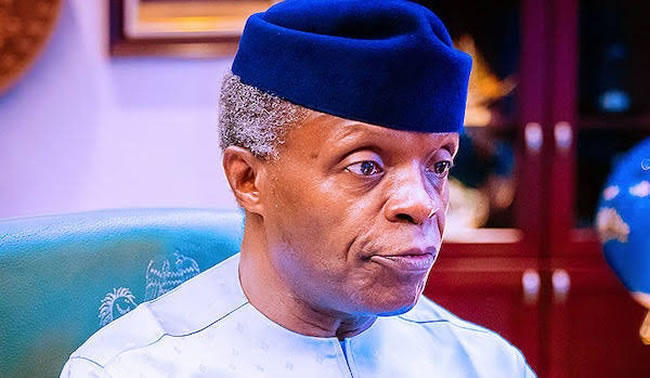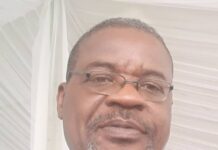By Chijioke Okoronkwo,
Over the years, climate change and its vagaries have featured conspicuously in global discourses.
From CoP1 in Berlin, Germany in 1995 to CoP27 in Sharm el-Sheikh, Egypt, it has been intense advocacy and dialogue on how to mitigate the impact of climate change and achieve a just energy transition vis-à-vis phasing out fossil fuel.
Worthy of note, CoP28 schedule to hold in Dubai in from Nov. 30 to Dec. 12 is imminent and the contemporary climate change issues—energy transition, desertification, drought, floods, heat waves, disruption of food systems among others –will still ricochet.
For Africa, where many economies are struggling with strangulating external debts, energy transition remains a herculean and capital-intensive task.
In Nigeria, relevant authorities say over 410 billion dollars will be spent to deliver its energy transition plan by 2060.
On a bothersome note, data from the National Bureau of Statistics (NBS) indicates that Nigeria’s external debt stood at N33.25 trillion as at Q2 2023.
The huge external debt leaves analysts worried that poor nations are being befuddled by the huge amount required to fund their energy transition plans.
In the light of the aforementioned, perceptive stakeholders are of the view that the Debt –for- Climate (DFC) Swap deal proposed by former Vice-President, Yemi Osinbajo, should be deliberated at the CoP28 scheduled for Nov. 30 to Dec. 12 in UAE.
Osinbajo, a climate change advocate, had, in 2022, proposed the DFC swap deal in order to ensure a just energy transition for African countries.
He made the proposal in Washington, U.S. while seeking global partnerships and support for Nigeria’s Energy Transition Plan (ETP).
The former Vice-President delivered a lecture explaining the DFC concept on a just and equitable energy transition for Africa at the Center for Global Development in Washington D.C, U.S.
According to Osinbajo, DFC is a type of debt swap where bilateral or multilateral debt is forgiven by creditors in exchange for a commitment by the debtor to use the outstanding debt service payments for national climate action programmes.
“Typically, the creditor country or institution agrees to forgive part of a debt, if the debtor country would pay the avoided debt service payment in a local currency into an escrow or any other transparent fund and the funds must then be used for agreed climate projects in the debtor country.
“Increase the fiscal space for climate-related investments and reduce the debt burden for participating developing countries.
“For the creditor the swap can be made to count as a component of their Nationally Determined Contributions (NDC).”
He said there were significant policy actions necessary to make the deal acceptable and sustainable.
Osinbajo also proposed the greater participation of African countries in the Global Carbon Market while exploring financing options for energy transition.
He said there was a need to take a comprehensive approach in working jointly towards common goals, including the market and environmental opportunities presented by the financing of clean energy assets in growing energy markets.
“In addition to conventional capital flows both from public and private sources, it is also essential that Africa can participate more fully in the global carbon finance market.
“Currently, direct carbon pricing systems through carbon taxes have largely been concentrated in high and middle-income countries.’’
Osinbajo encouraged developed countries to support Africa to develop into a global supplier of carbon credits, ranging from bio-diversity to energy-based credits.
The vice president said that the central thinking for most developing countries was the issue of a just transition with two, not one, existential crises–the climate crisis and extreme poverty.
“The clear implication of this reality is that our plans and commitments to carbon neutrality must include clear plans on energy access if we are to confront poverty.
“This includes access to energy for consumptive and productive use and spanning across electricity, heating, cooking, and other end-use sectors,’’ he said.
He cautioned that limiting financing of gas projects for domestic use would pose a severe challenge to economic development, delivery of electricity access, clean cooking solutions, and the scale-up and integration of renewable energy into the energy mix.
Osinbajo said that ETP was designed to tackle the dual crises of energy poverty and climate change and deliver SDG-7 by 2030 and net-zero by 2060 while concentrating on the provision of energy for development, industrialisation, and economic growth.
Weighing in on Osinbajo’s proposal ahead of Cop28 a Professor of Environmental Engineering, University of Abuja, Adullahi Evuti, said it was weighty enough to be art of the agenda of the conference.
He regretted developing countries were bearing the brunt of the actions of developed countries; hence the need for such a deal.
“I support the proposal considering the trans-boundary nature of the effect of climate change.
“The highest polluting nations are the advanced countries like America and China; they emit the largest percentage of greenhouse gases annually and the effect is felt worldwide and Nigeria and other poor nations are not shielded from the effects.
“For instance, in Nigeria now, we are having issues of flooding, unpredictable climate change issues, desertification among others.
“And these could be attributed to some of the effects of the activities of advanced nations.
“So, the call by the former vice president that our debt should be waived based on the consequences of the actions of developed nations on the climate is apt,’’ he said.
Dr Abdullateef Taye, Registrar, African Institute of Waste Management and Environmental Studies, Kaduna, said the proposal could be a valuable tool in achieving sustainable development and mitigating economic imbalances.
According to him, the primary goal of Debt-for-Climate swap is to channel financial resources towards addressing climate change and supporting sustainable development in debtor countries, as opposed to servicing existing debt obligations.
He said that the approach aimed to encourage countries to invest in climate mitigation and adaptation efforts, which were crucial in the fight against climate change.
“Debt-for-Climate swap deal can be seen as a positive step towards addressing both environmental and economic challenges.
“By forgiving debts in exchange for investments in climate action, it can incentivise countries to take more sustainable measures, which is essential for combating climate change.
“ However, the effectiveness of such deals depends on the specifics and commitment of the parties involved.’’
On whether the proposal should be further discussed at CoP28, Taye said it depended on various factors.
He listed the factors as the level of interest and support from participating nations, the potential impact of such deals on global climate goals, and the details of the proposal itself.
“CoP meetings serve as forums for discussing and advancing climate-related initiatives; so, it could be a suitable platform for such discussions if there is consensus among nations to do so,’’ he said.
Sharing similar sentiments, Mrs Blessing Ewa, Founder and Director, Young Advocates for a Sustainable and Inclusive Future (YASIF) NIGERIA, said she was fully in support of the proposal given the cost of addressing issues around loss and damage as faced by developing countries.
She said that proposal should be debated at CoP28 with emphasis on polluting countries who would continue polluting while developing countries kept cleaning their messes because they owed them money.
“They need to make conscious effort to stop polluting because climate change is not a business of cards; it is a global crisis and should be seen that way.
“More so, monies given to developing countries as loans to run damages caused by these same developed countries should stop.
“ This is one major reason developing countries keep going deep into debts with them; because they lend us these monies to fix the mess they caused and expect us to pay back with high interest,’’ she said.
Deserving no less attention, Mr Steve Abu, Coordinator, Climate and Sustainable Development Network of Nigeria (CSDevNet), said he was favourably disposed to the tender.
“The proposal is perfectly in order; I support that it becomes an agenda at CoP28,’’ he said.
Experts hold that Osinbajo’s Debt-for-Climate swap proposal is noble and a novel idea; hence, it should be given the attention and impetus it deserves at the forthcoming CoP28. (NANFeqatures)




